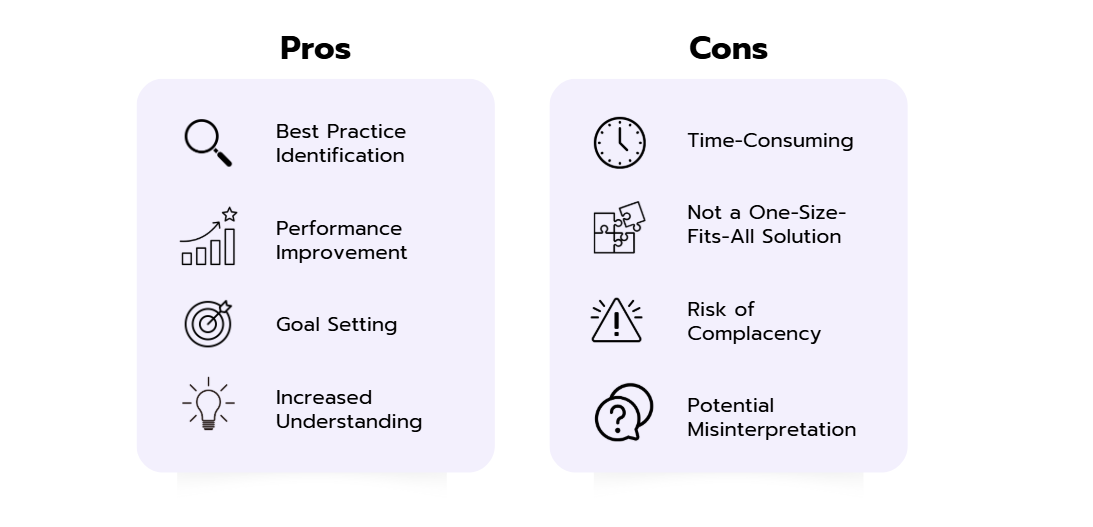Benchmarking, as a strategic process, involves organizations analyzing their performance, products, services, or processes in comparison to those of industry leaders. This process, serving as a mirror, allows organizations to recognize their position in the competitive landscape. It plays a vital role in defining performance standards and identifying areas of improvement, thereby offering avenues to emulate best practices and enhance overall performance.
The execution of benchmarking, requires the utilization of certain tools that allow for systematic data collection, analysis, and interpretation. The methodical approach empowers organizations to close performance gaps, implement industry-leading practices, and strive for superior performance, positioning themselves favorably in their industry.
Synonyms: Performance Comparison, Competitive Analysis, Peer Comparison
Evaluating Benchmarking: Pros and Cons
Before diving headfirst into benchmarking, it's essential to consider both its benefits and potential drawbacks.

Pros:
- Best Practice Identification:
Benchmarking allows organizations to learn from industry leaders and adopt strategies that have been proven to work. - Performance Improvement:
By identifying performance gaps, organizations can focus on areas that need improvement to increase efficiency and effectiveness. - Goal Setting:
Benchmarking provides clear targets based on industry standards, assisting in goal setting and strategic planning. - Increased Understanding:
It aids in a better understanding of the competitive landscape and provides context for how an organization compares to its peers.
Cons:
- Time-Consuming:
The process of collecting, analyzing, and comparing data can be labor-intensive and time-consuming. - Not a One-Size-Fits-All Solution:
What works for one organization may not necessarily work for another due to varying factors like culture, resources, and business models. - Risk of Complacency:
Over-reliance on benchmarking can stifle innovation, as companies may choose to follow instead of lead. - Potential Misinterpretation:
There's a risk of misinterpreting the data or practices of other companies, leading to faulty decision-making.
Benchmarking: A Crucial Tool for Consultants
Understanding benchmarking is a critical part of any consultant's arsenal. It allows consultants to measure an organization's position relative to others, thereby helping to establish a roadmap for improvement. By effectively implementing benchmarking, consultants can provide actionable insights that can lead to significant enhancements in performance, productivity, and competitive advantage.
With benchmarking, consultants can facilitate an organization's growth by setting realistic and actionable targets, stimulating innovation, and promoting a culture of continuous improvement. However, consultants must also be mindful of its limitations and risks, ensuring they offer tailored, data-driven advice that suits each client's unique needs and context.

